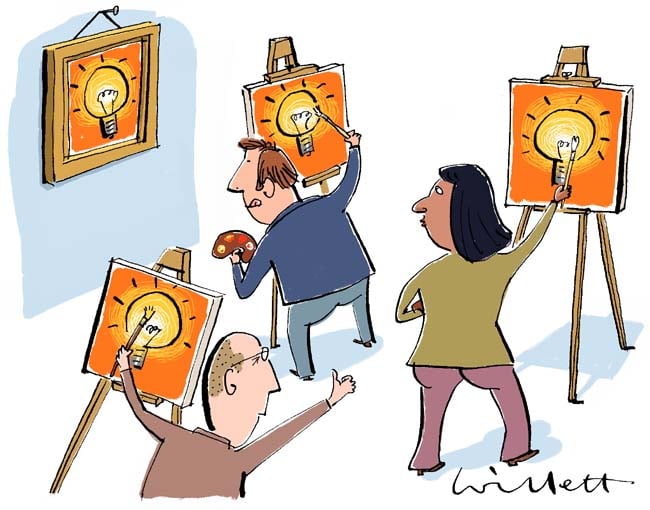Now, this title may sound unusual, given that we are surrounded by numerous articles and videos highlighting the importance of AI in nearly everything. Many people forget that AI is merely an assisting tool and should not replace them.
Occasionally, I meet with a new client who has a strong belief in AI and utilizes it in numerous applications. They often share a script for their upcoming speech or presentation, and it takes me only one look to figure out that this is an AI-generated version.
And the thing is, I have witnessed clients from different fields working in various positions share scripts of their speeches with me, only to find that their story narratives and talk skeletons are nearly identical. Following such scenarios, we will end up being clones of each other.
When we ask people to present their reports and ideas instead of just sending them via email, it’s because we want to allow them to explain their ideas more thoroughly, share the story behind them passionately, and showcase their uniqueness. However, relying mainly on AI to write your speeches will ultimately result in dull and repetitive speeches and presentations.
I’ve said it many times: leaving a lasting impression and achieving influence isn’t just about demonstrating confidence or having a solid structure in your content; it’s also about showcasing your unique expertise and style through your content and performance. That’s because you want to be recognized among hundreds because of WHO YOU ARE AND WHAT YOU OWN, not because of just confidence and structure that anyone could demonstrate.
Although it’s common sense that speechwriters support officials and spokespersons in writing their speeches, those speeches should sound genuine and reflect the speaker’s own voice. That’s why, when I work on such positions, our top priority is that the speech sounds authentic, not like it was written by someone else. Even with the presence of professional speechwriters, they must write with the speaker’s spirit, use the speaker’s keywords, and adopt a style that demonstrates the speaker’s personality. That is something an AI tool cannot obtain by giving it a couple of data points.
Not to mention that you cannot demonstrate passion genuinely by delivering a speech that doesn’t breathe “YOU” between its lines.
Does this mean AI tools aren’t helpful in public speaking? Of course not.
There are plenty of other benefits for AI. Let me address some of them here:
1) Topics research and initial content creation:
As I just discussed, the main ideas and message of your content should be your input; however, you can also depend on AI tools to gather resources for you, brainstorm ideas, and suggest case studies or statistics.
Examples: Chat GPT-3
2) Content and Vocabulary Enhancement:
When presenting in a different language than your mother tongue, sometimes we fall into the trap of using the same vocabularies or wrong Grammer that would affect the richness and clarity of your content, That’s why you could depend on AI tools to generate different vocabularies to deliver the exact meaning you aim for, (Note: It’s always recommended to choose vocabularies that are easy on your tongue. Do not trade smooth articulation for sophistication.)
Example: Gabble – Speeko – Grammarly
3) Practicing and rehearsals:
Now we can see AI-powered tools that assist in analyzing speeches or presentations, helping you during your rehearsal phase. Of course, the accuracy of these tools isn’t enough yet to detect all areas of improvement, but they will remain good assisting tools.
Examples: Orai – Yoodli
4) Presentation Design:
There are plenty of AI tools that can assist you in designing your presentation slides, especially for quick and brief meetings. Of course, you’ll need to adjust the slides based on your objective, audience analysis, and rehearsals to ensure a smooth flow.
Examples: Canva – PowerPoint Designer – SlideSpeak
Yes, technology is meant to make our lives easier, and it’s always wise to stay updated with new tools, however Public Speaking has always been about human connection, which is why we need to remember that demonstrating who we are, how we feel, and what we own isn’t an easy task that can be dictated by an AI tool.




